There is something about food that acts as a social lubricant. Maybe it’s the fact that conversation is more easily started when choruses of “mmmmm’s ”and “This is so good’s” ring from around the table. Maybe it’s because food provides something to do with your hands, something to look at, something to reach for when conversation runs dry.
I don’t know. But, whatever the cause, I was thankful for food today, both for its sustenance and for the conversation started.
When Julianna, Eva, and I finally sat down to lunch after an impromptu excursion across town, most of our colleagues had already finished eating. As they cleaned their plates, we filled ours, perfectly content to eat alone. Lucky for us, however, Hind, another colleague of ours, walked in as the others left, and sat down with us.
“Mmmmm.”
“This is so good.”
The conversation began.
I have found, here, that if you talk long enough, the conversation will hit a decision-making point where it will either turn to the Occupation or come to an end, and so it was with our conversation with Hind: clear our plates and go back to work, or get into the sticky reality of life behind the Wall.
I got a second serving.
At the conversation’s start, we spoke of Hind’s children. She told us stories from their childhoods and recounted memorable trips her family had taken across the country. As her children grew older in her stories, however, traveling became less prominent in her memories. “Checkpoints” started entering the conversation along with the words “Wall,” “hard,” and “painful.”
As Hind pointed out, anger breeds under occupation, like mosquitos on a muggy swamp in June. There is little room for positivity in an open-air jail cell.
“I was angry for four years,” Hind said, shuttering as the words hit the air. “It was horrible.”
Never in my life have I been able to say the amount of time, exactly, that I have been angry.Never in my life have I shuddered at the thought of my own anger.The “anger” I have felt is not the same thing Hind felt, and not the same thing many Palestinians still feel everyday.
“I was angry,” she said, “until I finally realized that anger does nothing but destroy you from the inside out. I have figured that out, but I am 63 years old, and it took me a long time. What about the children and the youth?”
Her eyebrows furrowed as she thought about what life would be like now as a twenty year-old, living at an age, in an age, where it is hard to get an education and harder still to find a job, where you are literally stuck in one place, unable to leave. “It’s more than a lack of opportunity here. It’s a suffocation of society.”
How do you live peacefully if you can’t feel hope?
That is the question I have been pondering as I stroll the streets of Bethlehem and wave back at the friendly faces that greet us with smiles. In the midst of the anger, poverty, and despair, there is still peace and, I think, there is still hope.
I witnessed this, especially, this evening, which began with a loud knock on the door that jolted us awake from our after-work nap. We opened it to see Abu Afif, a receptionist at the Center, standing there panting.
“Taxi! Taxi!” he shouted, speaking very little English.
We had not ordered a taxi?
“Did George send it,” I asked?
“Taxi! Taxi!”
“George?”
“Ahhhh yes, yes! George! George, taxi! Downstairs.”
So we got in the taxi that George had apparently sent us, and the driver took us to Beit Jala where George lives with his family. Immediately upon arrival, we were welcomed with insurmountable hospitality. His parents wrapped us in warm hugs. His nieces and nephews, shy at first, were soon passing soccer balls to us and asking us questions and telling us stories. His sister took us into the garden and insisted that we take “some” of their fruit (“some” in Palestine means “all,” we’ve learned.)
After an hour or so of visiting on their quiet porch and cherishing the feeling of family, I turned to George and said, “George, your family feels like family.”
“That’s why I brought you here,” he said, “so you would know you have a family in Palestine.”
As our time with George’s family came to a close, George’s friend Hassam, another colleague at the Center, showed up with his car, and he and George took us to dinner.
Again, food was a social lubricant, but instead of opening a heavy conversation, this time it brought laughter. So we laughed. And laughed. And laughed. We drank. We ate, and they wouldn’t let us stop, so we ate more.
After six Arab salads, chicken, potatoes, a plate of watermelon, and a few rounds of drinks, Hassam asked for the bill. As we reached for our purses to contribute to the cost, Hassam said, “No, not tonight. Someday you will pay, but not tonight. Welcome.”
Food here is not cheap.
Between our conversation with Hind and our emotional release with George, his family, and Hassam, today has been a good day filled with inquiry, challenge, love, and laughter. And, already, I have seen how it is possible to live in peace and find hope, all while enduring the unending hell of occupation.
In this Holy Land, I have found something that feels like home, and for the first time of what I’m sure will be followed by many more, I got a lump in my throat at the thought of leaving four weeks from now.
Blest be the food that binds.
 egan singing at the age of eight, but paused her musical aspirations in order to study pharmacy at An-Najah University. Now that she has completed her studies, Ohood sings in a band called Lemana. Lemana plays classical songs of artists such as Om Kolthom, Fairuz, and Asmahan. In addition to her prowess in both music and pharmacy, Ohood is a talented designer and seamstress of traditional Palestinian clothing and aims to one day wear her own dresses on stage. She also hopes to follow in her grandmother’s footsteps and pursue music professionally. Her father encourages this dream, as he believes she has talent. Yet everyone is not as encouraging as her father. Ohood tells me that most people in Palestine don’t encourage singers. Despite this, she is determined to follow her dream. She states that although it may be impractical, music is her passion. She sings because “Music means life. Life without music means no love.”
egan singing at the age of eight, but paused her musical aspirations in order to study pharmacy at An-Najah University. Now that she has completed her studies, Ohood sings in a band called Lemana. Lemana plays classical songs of artists such as Om Kolthom, Fairuz, and Asmahan. In addition to her prowess in both music and pharmacy, Ohood is a talented designer and seamstress of traditional Palestinian clothing and aims to one day wear her own dresses on stage. She also hopes to follow in her grandmother’s footsteps and pursue music professionally. Her father encourages this dream, as he believes she has talent. Yet everyone is not as encouraging as her father. Ohood tells me that most people in Palestine don’t encourage singers. Despite this, she is determined to follow her dream. She states that although it may be impractical, music is her passion. She sings because “Music means life. Life without music means no love.”


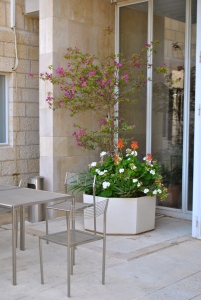
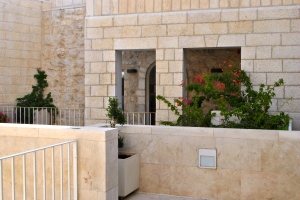
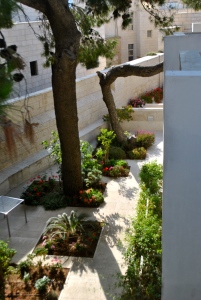

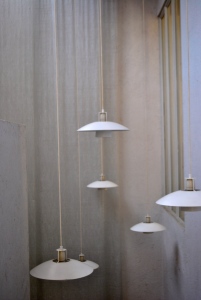













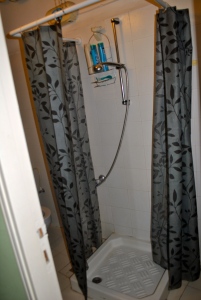


 riendship bracelets). Sitting on the bed in the late hours of the night, popcorn and candy gone hours ago, pens in hands, the two decided to spend their summer selling handmade goods that would fund their adventures. At the age of eight, neither one being particularly practiced in craftsmanship nor entrepreneurship, their joint business of Bubbles and Blondie was fueled more by sugar-high excitement, camaraderie, and enthusiasm than business know-how. Their adventures, however, were sustained by the same ingredients, which proved much more successful and enabled their hopes of changing the universe.
riendship bracelets). Sitting on the bed in the late hours of the night, popcorn and candy gone hours ago, pens in hands, the two decided to spend their summer selling handmade goods that would fund their adventures. At the age of eight, neither one being particularly practiced in craftsmanship nor entrepreneurship, their joint business of Bubbles and Blondie was fueled more by sugar-high excitement, camaraderie, and enthusiasm than business know-how. Their adventures, however, were sustained by the same ingredients, which proved much more successful and enabled their hopes of changing the universe.